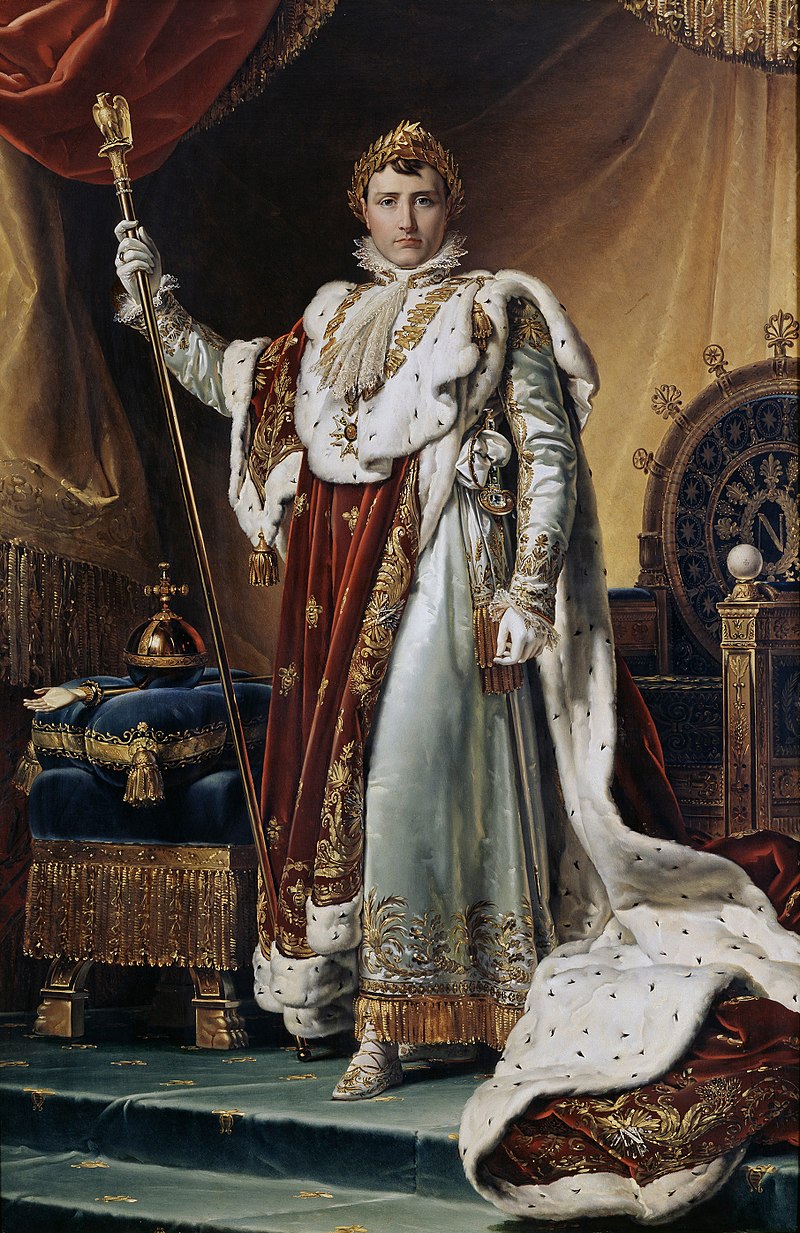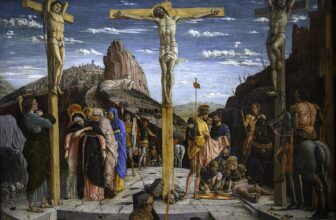
The coronation of Napoleon Bonaparte as Emperor of the French on December 2, 1804, is one of the most iconic and symbolically significant events in modern history. This grand ceremony, held in the Notre Dame Cathedral in Paris, was meticulously orchestrated to project Napoleon’s power, legitimize his rule, and establish a new dynasty amidst the turbulent legacy of the French Revolution. The event was filled with political intrigue, personal ambition, and profound historical implications, marking a pivotal moment in the trajectory of both France and Europe.
Historical Context
The coronation came at a time when France was emerging from the chaos of the French Revolution and the subsequent Reign of Terror. Napoleon, a brilliant military strategist and charismatic leader, had risen to prominence through his successes in the Revolutionary Wars. By 1799, he had become the First Consul of France following a coup d’état, effectively making him the ruler of the nation. In 1804, he consolidated his power further by declaring himself Emperor, a move that was approved by a plebiscite. This transition from a republic to an empire was controversial but underscored Napoleon’s belief in his destiny to lead France to greatness.
Preparations for the Coronation
The coronation was meticulously planned to blend revolutionary ideals with monarchical traditions. Napoleon wanted the ceremony to be a spectacle that would both impress the French populace and convey his authority to foreign powers. To this end, he collaborated with Pope Pius VII, who was invited to preside over the ceremony. This was a calculated move to gain the Church’s endorsement and lend an aura of divine legitimacy to his reign.
The choice of Notre-Dame Cathedral as the venue was equally significant. Although it had been desecrated during the Revolution, its restoration and use for the coronation symbolized a reconciliation between revolutionary France and its Catholic heritage. Artists, architects, and craftsmen were commissioned to transform the cathedral into a magnificent setting. Jacques-Louis David, a renowned painter, was tasked with documenting the event, resulting in the famous masterpiece “The Coronation of Napoleon.”
The Ceremony
On the morning of December 2, Paris was abuzz with excitement. Thousands of spectators lined the streets to catch a glimpse of the grand procession. Napoleon and his wife, Joséphine, arrived at Notre Dame in a gilded carriage, dressed in opulent robes that symbolized their imperial status. Napoleon wore a velvet cloak adorned with golden bees, a symbol of immortality and connection to the ancient Merovingian kings, while Joséphine donned a white silk gown embroidered with gold.
Inside the cathedral, the ceremony was a blend of religious and secular traditions. Pope Pius VII blessed the imperial regalia, which included the crown, scepter, and orb. However, in a dramatic and unprecedented move, Napoleon took the crown from the Pope’s hands and placed it on his own head. This act was laden with symbolism, asserting that his authority was self-made rather than bestowed by the Church. He then crowned Joséphine as Empress, cementing her role in the new regime.
The event was accompanied by music composed by Giovanni Paisiello, which added to the grandeur of the occasion. The ceremony lasted several hours and concluded with proclamations of “Vive l’Empereur!” (Long live the Emperor!) echoing through the cathedral and the streets of Paris.
Symbolism and Significance
Napoleon’s coronation was rich with symbolism that reflected his vision for France and his place in history. By crowning himself, he broke with the tradition of monarchs receiving their crowns from the Church, signaling a new era where secular power took precedence over religious authority. This act also underscored his belief in meritocracy, a principle he championed throughout his career.
The ceremony blended elements of the French Revolution with the grandeur of the ancien régime, creating a hybrid identity for Napoleon’s empire. The presence of revolutionary symbols, such as the tricolor flag, alongside traditional monarchical regalia, illustrated his ability to synthesize different ideologies to legitimize his rule. This duality was a hallmark of Napoleon’s leadership, allowing him to appeal to a broad spectrum of the French population.
Political Implications
Domestically, the coronation solidified Napoleon’s authority and marked the beginning of the First French Empire. It ended the uncertainty of the revolutionary period and established a sense of stability, albeit under an authoritarian regime. The ceremony also reinforced the idea of a strong, centralized state with Napoleon at its helm.
Internationally, the coronation sent a clear message to other European powers: France was no longer a revolutionary republic but an empire with ambitions of dominance. This shift alarmed many monarchies, particularly Britain, Austria, and Russia, who viewed Napoleon’s rise as a threat to the balance of power in Europe. The coronation set the stage for the Napoleonic Wars, a series of conflicts that would reshape the continent.
The Role of Joséphine
Joséphine’s coronation as Empress was an integral part of the ceremony. Despite their complex and often tumultuous relationship, Napoleon’s decision to crown Joséphine himself demonstrated his recognition of her importance to his public image and political aspirations. Her grace and poise during the ceremony won the admiration of the French people, further legitimizing the new imperial family.
However, their marriage faced challenges, particularly the lack of an heir. This issue would later lead to their divorce in 1810, as Napoleon sought to secure his dynasty through remarriage. Despite this, Joséphine remained a beloved figure and an enduring symbol of the coronation.
Legacy
The coronation of Napoleon had far reaching consequences that extended beyond his reign. It set a precedent for the use of spectacle and symbolism in modern statecraft, demonstrating the power of carefully orchestrated ceremonies to shape public perception. Napoleon’s self-coronation also influenced subsequent leaders who sought to assert their authority through similar means.
The event remains a subject of fascination for historians and scholars, who continue to debate its significance. Some view it as a betrayal of revolutionary ideals, while others see it as a pragmatic move to stabilize France and consolidate power. Regardless of interpretation, the coronation epitomizes the complexities and contradictions of Napoleon’s legacy.
The coronation of Napoleon Bonaparte was a carefully crafted statement of power, ambition, and vision. By blending revolutionary principles with monarchical traditions, Napoleon forged a new identity for France and himself. The grandeur of the ceremony, the dramatic act of self-coronation, and the political implications of the event continue to captivate and inspire, making it a defining moment in the history of the modern world.




